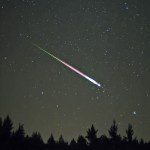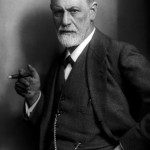
(Wikimedia Commons public domain image)
This blog entry is, to a considerable extent, a continuation of the thinking that I began yesterday.
Considerable merriment has been occasioned among a handful of merry madcaps over at what I call the Peterson Obsession Board by my repeated invitations to an atheist commenter on my blog (whom we shall call “gemli”) that he read books and/or articles on the topics that he professes to address in his many comments here. He himself has steadfastly refused to look at any of them, since he knows in advance that they are all without value. On multiple occasions, in response to his insistence that it is essentially immoral to believe in propositions that can’t be proven, I’ve directed him to the classic essay by the great Harvard psychologist and philosopher William James entitled The Will to Believe, which explicitly responds to the notion that belief in propositions that can’t be proven is immoral. He has invariably refused to read it, because, he says, it argues for mystical “woo-woo” and “booga-booga” and is obvious nonsense. He has declared hundreds of times that there is no evidence for any of the propositions that I advance here; he has refused each time to look at any of the evidence that I’ve offered for his examination.
Mostly, I suppose, because gemli is challenging me,, his admirers over at the Obsession Board have vocally hymned his praise in this regard (as in others). My inviting him to read about, say, the witnesses to the Book of Mormon or purported archaeological evidence for Latter-day Saint claims or the character and the legal trials of the Prophet Joseph Smith or near-death experiences or arguments for the fine-tuning of the universe is the equivalent, from their point of view, of demanding that he read publications of the Flat Earth Society or accounts of alien abductions.
But, of course, my position is that, if one is going to comment publicly for years on accounts of alien abductions or on the quality of the publications of the Flat Earth Society, one should, yes, read them. If one comments publicly over a period of several years on the reliability (or lack thereof) of the Book of Mormon witnesses, one should have read something about them.
I have recommended, for instance, that gemli read Richard Lloyd Anderson’s Investigating the Book of Mormon Witnesses. With his Harvard law degree and his doctorate in ancient history from the University of California at Berkeley and his decades of meticulous research, Professor Anderson isn’t an immediately obvious idiot who can be summarily dismissed, sight unseen. And yet gemli has summarily dismissed Professor Anderson each and every time, unread, proceeding thereupon to pronounce his negative verdict on the credibility of the witnesses and, even, to tell us what really happened with them. Has he read other materials about the witnesses? No. Of course not. He doesn’t need to read anything in order to know all about them.
I’m at a loss, frankly, to understand how this is admirable, or deserving of applause.
To the best of my recollection, I have never so much as read two full paragraphs about the Songhai Empire that dominated the western portion of the African Sahel in the fifteenth and sixteenth centuries. And, as long as I remain silent on the subject, that is perfectly fine. I have no opinions about it; I don’t take it upon myself to lecture others about its history. And, if I did begin to opine publicly about it, others — and especially others who had actually taken the trouble to learn about it — would be quite justified in criticizing me, and in laughing at my audacious presumption.
If one commences to comment publicly on Joseph Smith’s character, it surely wouldn’t hurt to read a decent biography of him or two, or at least to skim through one of the several books by solid scholars that attempt to describe his character based on the testimonies of those who knew him. If one decides to argue publicly about the legal cases in which Joseph was involved, it doesn’t seem altogether weird to suggest that one should perhaps take a look at some of the recent books and articles produced by reputable legal historians on exactly that topic.
Now, to change the subject a bit but not really the point: In the past month or so, I’ve posted several entries here about parapsychology, “remote viewing,” and extrasensory perception or ESP.
I’ve previously sketched how I came to my present position — an openminded willingness to consider the matter, and, actually, a growing inclination to give it some credit — from my previously long-held conviction that there was simply no evidence to support parapsychological claims. I’ll do it again now, perhaps more clearly.
Years ago, I developed an interest in the writing of the distinguished Anglo-American philosopher of religion John Hick (1922-2012), whom I once had the actual privilege of meeting. In one of his books — I don’t recall offhand which of them it was — he casually mentioned how impressed he had been upon doing some serious reading in publications of the Society for Psychical Research. To say that I was surprised would be to put it mildly. Here was a thinker for whom I had considerable respect, and he was sharing a positive judgment on a group that I had thought, honestly, to be about as credible as, well, the Flat Earth Society. I filed that away in my mind, intending someday to take a systematic look at their work. (I still haven’t really done it; it remains a goal of mine.)
Perhaps I had been loosened up just a bit, even before reading Professor Hick’s aside, by my one totally unexpected experience with “dowsing” or “water witching.” It was a success. But I drew no broad conclusions from it, except to be somewhat less certain about such things.
Years later, after my immersion in John Hick’s books, I read The Afterlife Experiments, a 2002 book principally written by Gary E. Schwartz (Ph.D., Harvard University), who was a professor of psychiatry and psychology at Yale University, as well as Director of the Yale Psychophysiology Center and co-director of the Yale Behavioral Medicine Clinic from 1976 to 1988, before moving to the University of Arizona, where he is currently Professor of Psychology, Medicine, Neurology, Psychiatry, and Surgery and the Director of the Laboratory for Advances in Consciousness and Health in the Department of Psychology. I mention his credentials not to imply that he cannot be questioned or that he is necessarily right, but merely to indicate that he isn’t an obviously unqualified buffoon.
Reading Professor Schwartz’s book shook me profoundly.
Thereafter, I came across Elizabeth Lloyd Mayer’s posthumously published 2007 book . Dr. Mayer (Ph.D., Stanford University) was a psychoanalyst in private practice as well as an associate clinical professor of psychology at the University of California, Berkeley, and on the staff of the UC Medical Center in San Francisco. Again, not an obvious buffoon.
Her book opened my mind to things that I had never seriously considered.
And, very recently, I finished Deborah Blum’s very readable book Ghost Hunters: William James and the Search for Scientific Proof of Life After Death, which has given me a much better idea of the history of “psychic research” than I had before, and of the care with which the early leaders of the Society for Psychical Research — some of them extraordinarily prominent scientists and philosophers in their day and ours — went about their work.
Now, I’ve been fairly extensively mocked online over the past few weeks for my openness to evidence for “extraordinary knowing.” A few have vowed that they will never waste their time reading such worthless drivel. Several have informed me that there simply is no evidence for ESP or clairvoyance or anything of the sort.
But that seems to me to be the very question at issue — and refusing to read about the subject seems to me a very poor way to develop an informed view on the matter.
Posted from Poʻipū, Kaua’i, Hawai’i












